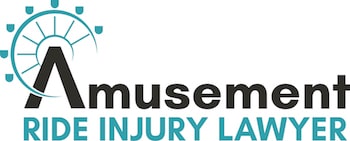Defenses Amusement Parks May Use
If you or a loved one was injured on an amusement park ride and are attempting to sue the park, there are several defenses that the park may try to use. These defenses will try to place the blame off of their park or staff and back onto you or the rider who got injured. Knowing these defenses will help you understand some of the legal tactics and be more prepared.
Assumed Risk
First, the park can say that by using the ride, you were assuming the risk of getting hurt. When you decide to get onto a ride, you are assuming the possibility that you may be injured by bumping your head or bruising your leg, etc. However, you are not assuming the risk that there is a malfunction of the ride, a mechanical error, or that the operator of the ride is not paying attention.
If you are injured because the safety belt come undone because it broke in the middle of the ride, this is not considered risk that you were assuming before getting on the ride. Therefore, this defense would most likely not hold up in court. In this case, it is the park’s job to either have the malfunctions and mechanical errors fixed, or make the riders aware of these issues before they get on the ride. If the operator is not paying attention and an injury results, this may be considered negligence.
Rider Negligence
Second, the park may claim that the reason for injury was because of noncompliance with safety rules and regulations. For example, they could say that the reason you got injured was because you did not follow height and weight requirements or because you stood up on a ride. As long as you were not breaking any of the rules on the ride, this defense most likely cannot be used. If your injury occurred because of you not following the rules, it still could be the park’s fault if the rules were not posted for you to see.
Liability Disclaimers
Third, the park could claim that there was fine print on the admission ticket that you purchased. If there was a disclaimer at the bottom or back side of the ticket, it may state that the park is not liable or at fault for any injury that is sustained on their rides. This claim is usually not taken seriously in lawsuits, however. Disclaimers on tickets usually do not hold up, especially when a child is injured. Children most likely do not understand what liability is. Unfortunately, amusement parks try to put these disclaimers on tickets in order to not have any fault fall to them. This can cause those who do get injured to believe that there is nothing they can do about it, and end up not getting compensation or anything for wrongful injuries.
Getting Help
Even if you believe that an amusement park may be able to use one of these defenses against you if you file a lawsuit, consider contacting us to see what you can do and if you can proceed. Many times these defenses do not hold up, and each and every personal injury case is different. Contact one of our attorneys to get the legal assistance and compensation you need.

